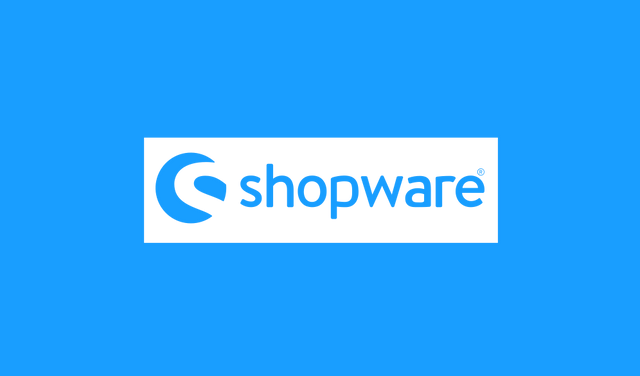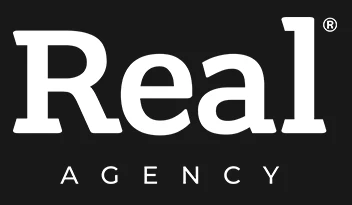Shopware - Another Viable Alternative to Magento?
German efficiency in an eCommerce platform. The idea of two brothers back in 2000 means Shopware has a longstanding heritage and deep roots in eCommerce, but as a lesser-known platform outside Germany, where it is the market leader, do you get all the same benefits and features as you would from one of the major eCommerce giants like Magento?
The platform is going from strength to strength, with a growing ecosystem and user-base, but also thanks to its slick design, intuitive responsive admin interface and core feature principles. With the latest API technology connecting IoT devices, smartwatches or voice assistants to any part of Shopware’s functionality, it could inspire some interesting use cases in the near future.
With commonalities like open source, page builders and extension marketplaces, they’ve set their sights on the SME audience but with a distinct speed advantage, automated on-page SEO configuration and first-class usability, can this platform help your overtake your competitors and delight your customer? Let’s find out why customers like L’Oréal, Philips, Lufthansa, and Mercedes-Benz are all using Shopware.
Why We’ve Chosen The Shopware Platform
At Media Lounge, we’re making a transition from being a Magento agency to becoming an eCommerce agency. We want to ensure we stay at the forefront of our industry and offer the best platforms, advice and software solutions to our clients.
As the needs of our clients have changed over the years, we want to accommodate a range of eCommerce platforms which better fit the retailer depending on where they are in their business and online retail journey. Having a platform like Shopware in our available eCommerce software solutions means we can always be recommending a range of suitable platforms to our clients and giving them a greater choice based on their needs now and their future ambitions. All our guidance is based on the Shopware6 software Professional and Enterprise editions.
Where Does Shopware Fit In The Market?
Playing its strengths directly at the mid-market, SME sector but priced with a one-off platform cost, Professional Edition costs €2,495.00 paid one-time, and the Enterprise Edition is available on request, both including 12-month manufacturer support. The user features and interface make this ideal for businesses with little or no development experience and you’ll have more control over page layouts and design without having to go to your development agency.
The modular way Shopware is built, and from an agency perspective, the inclusive user features allow for a quicker time-to-market with fewer implementation costs. This provides a strong foundation for you to grow your business or to take your business to the next level with a headless architecture approach using VueStorefront and deliver your visitors a faster eCommerce experience with PWA.
What Pain Points Does Shopware Address?
Every business is likely to have their own pain points they’d like to overcome with any new eCommerce system. The list below will resonate with retailers who have experienced frustrations with their current platform and therefore may benefit from the following:
• Simple and intuitive user interface, by far the best we’ve seen on any platform
• The best built-in “page builder” we’ve seen, allowing the admin to create unlimited new page layouts without the need for a developer
• Lower level of technical knowledge needed and ideal for any business with no in-house development skills
• Flexible API to connect IoT, smart devices and voice assistants
• Inclusive 12 months manufacturer support
• Built-in Google, Facebook, Instagram and Pinterest data feeds
• Automated image optimisation to reduce the need for resizing
• Multi-currency, multi-currency price lists, multi-language and currency conversion
• Superior checkout process with reduced bounce rate
• Faster page load times with less cache and indexing issues (compared to Magento 2)
• Extensive rule builder for pricing, discounts, actions, shipping methods and more, with no programming needed
• Built-in automated SEO configuration
• Lower running costs as less server resource is required
• Headless architecture and PWA compatible
Please also compare the platform weaknesses and limitations below to decide if the platform is right for you. Whilst many pain points above are addressed, there may be limitations with the platform which make it unsuitable for your business software architecture as a whole.
How Does Shopware Help My Business?
From a business perspective, most retailers look at how any new eCommerce platform could reduce cost, reduce admin time or improve the service they receive. Here are some key points we feel apply to most eCommerce businesses:
• Lower cost to implement and quicker time to market – basic stores ready in weeks, not months
• Reduced development costs as page structures and templates can be created in the admin
• Save time with automated SEO and rule builder to automate your business and eCommerce processes
• Easily scalable internationally with language, currency, and country-specific products
• Native B2B features giving customer-specific prices, quick orders and pay on invoice (Enterprise Edition only)
• Extendable with over 1,000 extensions from leading software providers and growing
• Intuitive product management with simple variant and dynamic variant creation
• Admin actions log so you can see all changes made by your teams (due in next release)
• Easy to install extensions from the admin panel, no developer required
• Bigger framework developer pool (symphony vs Zend)
Noteworthy Shopware Features
Some additional noteworthy features we feel would benefit most retailer, all as standard in the platform:
• Drag and drop image uploader
• Automated rules based customer recommendations (extendable to Ai with 3rd party services)
• Customer-specific payment methods using rule builder
• More thoughtfully developed extensions which work out the box
• Multi-store functionality
• Country specific sales channels
• Custom attribute creation and assignment
• Category filters and sorting with multiple configuration options
• Advanced search
• Modern stack technology SCSS for styles, Webpack to compile JS assets, and Twig for the HTML templating
• Customer segmentation to assign better and more personalised marketing and promotions
• Built-in blogging feature
• Moto order via the admin panel
• Edit an order after the sale is complete
• Minimum order quantity settings
• Tax settings per product
• Shopping world experiential page feature in page builder
Shopware Weaknesses & Limitations
Every platform has its weaknesses or limitations. Most frustrations come from not correctly identifying these before starting the project, putting limitations on your business or worse, having to move to another platform. The following are what we consider to be the platforms biggest weaknesses or limitations based on the types of features our clients regularly request or feel inhibit their growth:
• A smaller eco-system meaning fewer apps and 3rd party functionality (compared with Magento 2)
• Fewer certified platform specific developers worldwide (Magento 150k, Shopware 40k)
• Lighter reporting and detailed reports require manipulation of CSV data
• Shipping rules may be limited for some complex shipping needs (but standard built in rules are more flexible than competitors)
• Less popular for 3rd party software providers, therefore slower to get major integrations
• Unable to see what customer have in their baskets
• No native marketplace integration (Amazon/Ebay etc, but due in the next release)
• No built-in returns process
Conclusion
You want the power, scale and flexibility of an open source eCommerce platform, cloud or on-premise, but don’t want to pay perpetual license costs that come with other platforms. You have limited development resources and want to change or edit as much of the website as possible from the admin panel using a simple drag and drop page builder, creating unique personalised front end user experiences changing the templates, layouts and content throughout. You want to automate your business and implement powerful features and functions using the rule builder, yet save time on SEO using the built-in SEO automation features.
If any of the above rings true for your eCommerce store, Shopware could be the perfect platform to use.
It has in our opinion the best page editor we’ve seen and, coupled with the rules engine and easy installation of extensions via the admin panel, this eCommerce platform puts the power back in the retailer’s hand to take more control over their store. Whether you’re an SME or enterprise client, this should platform should certainly be on your list to evaluate.


